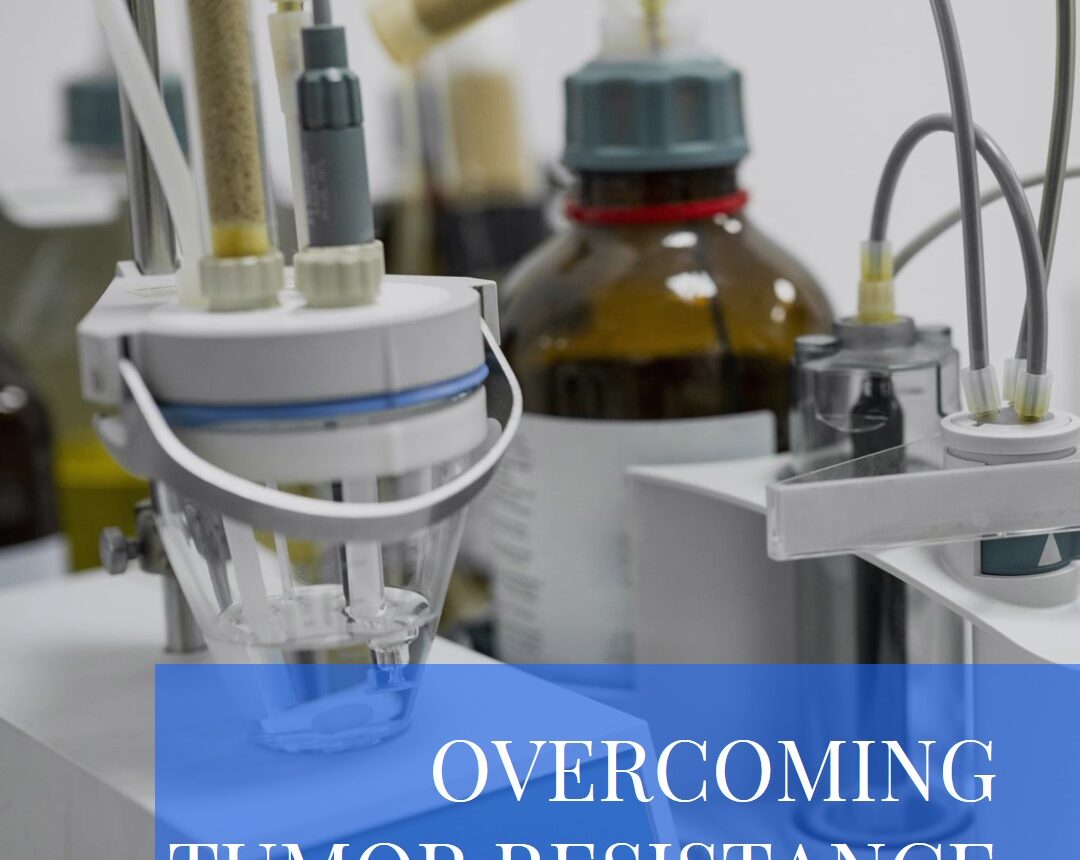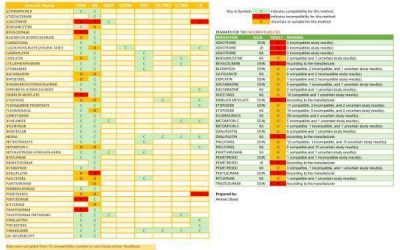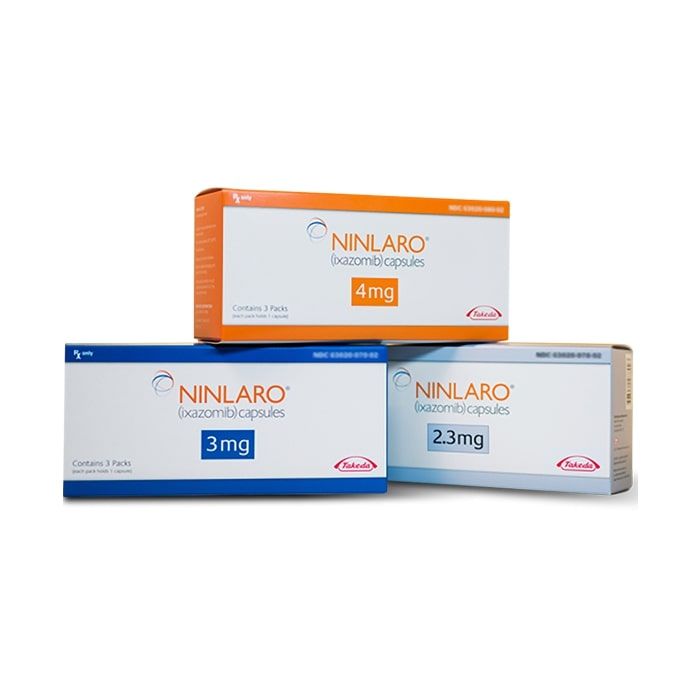Mannitol is used after cisplatin treatment to prevent or reduce the risk of cisplatin-induced nephrotoxicity, which is a major concern associated with cisplatin chemotherapy. Cisplatin is a widely used chemotherapeutic drug for various types of cancer, but its use is often limited by its potential to cause kidney damage.
Mannitol, an osmotic diuretic, is administered to promote osmotic diuresis and protect the kidneys from the toxic effects of cisplatin. The use of mannitol in combination with hydration has been evaluated in several studies to determine its efficacy in preventing cisplatin-induced nephrotoxicity [source] .
The rationale behind using mannitol after cisplatin treatment is to mitigate the nephrotoxic effects of cisplatin, which can lead to acute kidney injury. Cisplatin-induced nephrotoxicity is a dose-limiting adverse effect that occurs in a significant proportion of patients receiving cisplatin-based chemotherapy.
The use of mannitol aims to reduce the risk of kidney damage and preserve renal function in patients undergoing cisplatin treatment [source] .
Several studies have investigated the efficacy of mannitol in preventing cisplatin-induced nephrotoxicity. These studies have evaluated the impact of mannitol on renal function, the incidence of acute kidney injury, and the severity of nephrotoxicity in patients receiving cisplatin.
The results of these studies have shown that mannitol, when combined with intravenous hydration, can lead to a significantly lower incidence of acute kidney injury among patients treated with cisplatin, particularly in those receiving higher doses of cisplatin or concomitant radiation therapy [source] .
Effect of Mannitol Hydration on Cisplatin-Induced Nephrotoxicity

When exploring the realm of nephrotoxicity induced by cisplatin, the role of mannitol in hydration protocols becomes crucial. Mannitol, a type of osmotic diuretic, has been studied extensively for its potential nephroprotective effect in patients receiving cisplatin therapy. By understanding how mannitol impacts cisplatin-induced nephrotoxicity, healthcare providers can tailor treatment strategies to prevent acute renal damage.
Mannitol and Nephrotoxicity

One of the key aspects in preventing cisplatin-induced acute nephrotoxicity is the administration of mannitol along with hydration. Mannitol has been shown to have a protective effect on the kidneys, reducing the risk of nephrotoxicity commonly associated with cisplatin therapy.
Understanding the Role of Mannitol in Nephrotoxicity Prevention
The mechanism of action underlying mannitol’s protective effect involves its ability to increase urine output, thus aiding in the elimination of cisplatin and its toxic metabolites from the body. This diuretic action helps in preventing the accumulation of nephrotoxic substances in the kidneys.
Mechanism of Action: Mannitol’s Impact on Cisplatin-Induced Nephrotoxicity
Comparative studies have been conducted to evaluate the efficacy of mannitol versus normal saline in hydration protocols for patients undergoing cisplatin therapy. The results have shown that hydration with magnesium and mannitol without furosemide can significantly reduce the incidence of cisplatin-induced nephrotoxicity.
Comparing the Efficacy of Mannitol with Normal Saline in Hydration
Furthermore, mannitol, when used in conjunction with cisplatin and pemetrexed in patients with non-small cell lung cancer, has demonstrated a notable nephroprotective effect. This underscores the importance of incorporating mannitol into hydration protocols to mitigate the acute nephrotoxicity associated with cisplatin therapy.
Cisplatin-Induced Nephrotoxicity

When patients are treated with cisplatin, a commonly used chemotherapeutic agent, there is a risk of developing nephrotoxicity, which refers to kidney damage caused by exposure to cisplatin. This adverse effect can manifest as acute kidney injury and lead to complications in cancer patients undergoing treatment.
The Pathophysiology of Cisplatin-Induced Renal Damage
The pathophysiology of cisplatin-induced nephrotoxicity involves multiple mechanisms, including the formation of reactive oxygen species, inflammation, and direct tubular toxicity. These processes contribute to cellular injury and dysfunction in the renal tubules, ultimately leading to impaired kidney function.
Preventive Strategies for Cisplatin-Induced Nephrotoxicity
Healthcare providers employ various preventive strategies to minimize the risk of cisplatin-induced nephrotoxicity, such as hydration protocols with the use of mannitol, normal saline, or magnesium. These strategies aim to optimize renal function and reduce the incidence of renal damage during cisplatin therapy.
Comparative Analysis of Hydration with Mannitol and Magnesium
In clinical practice, the comparative analysis of hydration regimens involving mannitol and magnesium shows promising results in reducing the incidence of cisplatin-induced nephrotoxicity. By evaluating the efficacy and safety of these hydration methods, healthcare providers can tailor treatment protocols to enhance nephroprotection in patients receiving cisplatin therapy.
Impact of Mannitol Hydration on Cisplatin Therapy

When it comes to evaluating the protective effect of mannitol in combination with cisplatin, researchers have delved into how these compounds work synergistically to minimize the nephrotoxic effects of cisplatin. By understanding the intricate interplay between mannitol and cisplatin, healthcare providers can enhance treatment outcomes and reduce the risk of kidney damage in patients undergoing cisplatin therapy.
Hydration Regimens: The Role of Mannitol in Minimizing Cisplatin-Induced Acute Nephrotoxicity
The role of hydration regimens in managing cisplatin-induced acute nephrotoxicity cannot be understated. Mannitol plays a crucial role in these regimens by facilitating diuresis and enhancing the elimination of cisplatin from the body, thus mitigating the nephrotoxic effects of the chemotherapy agent.
Exploring the Synergistic Effect of Mannitol Plus Magnesium in Preventing Cisplatin-Induced Nephrotoxicity
Recent studies have highlighted the potential synergistic effect of combining mannitol with magnesium in preventing cisplatin-induced nephrotoxicity. By elucidating the mechanisms underlying this synergism, researchers aim to optimize hydration protocols and improve renal outcomes in patients undergoing cisplatin therapy.
Mannitol Hydration in Clinical Practice

When managing cisplatin-induced nephrotoxicity in non-small cell lung cancer patients, the incorporation of mannitol into hydration protocols plays a vital role. The nephroprotective effect of mannitol has been extensively studied in patients undergoing cisplatin therapy. By optimizing hydration regimens with mannitol, healthcare providers can mitigate the risk of acute renal damage in this patient population.
Management of Cisplatin-Induced Nephrotoxicity in Non-Small Cell Lung Cancer Patients
Comparative analysis of hydration regimens involving cisplatin alone versus cisplatin with mannitol reveals the superior efficacy of incorporating mannitol in preventing nephrotoxicity. The use of mannitol alongside cisplatin not only optimizes therapy but also reduces the incidence of cisplatin-induced nephrotoxicity, thereby improving patient outcomes.
Comparative Analysis of Hydration Regimens: Cisplatin Alone vs. Cisplatin with Mannitol
By optimizing cisplatin therapy through mannitol hydration, healthcare providers can enhance nephroprotection and minimize the risk of renal damage in patients undergoing cisplatin treatment. The synergistic effect of mannitol with cisplatin highlights the importance of tailored hydration protocols to prevent cisplatin-induced nephrotoxicity.
FAQs
Q: What is the effect of mannitol hydration on cisplatin-induced nephrotoxicity?
A: Mannitol hydration has been shown to potentially prevent or reduce the nephrotoxicity induced by cisplatin, a commonly used chemotherapeutic agent.
Q: How does cisplatin contribute to nephrotoxicity in patients?
A: Cisplatin can cause nephrotoxicity due to its accumulation in the kidney tubules, leading to damage and dysfunction of the renal system.
Q: Can the addition of mannitol decrease acute cisplatin nephrotoxicity?
A: Yes, the administration of mannitol alongside cisplatin has been suggested to reduce the incidence of nephrotoxicity associated with cisplatin treatment.
Q: Is it necessary to combine mannitol with furosemide to prevent cisplatin-induced nephrotoxicity?
A: Studies have shown that mannitol alone, without furosemide, may be effective in preventing cisplatin-induced nephrotoxicity.
Q: What is the recommended dose of mannitol to prevent cisplatin-induced nephrotoxicity?
A: The optimal dose of mannitol for preventing cisplatin-induced nephrotoxicity may vary, and it is advisable to follow the guidelines provided by healthcare professionals.
Q: How does mannitol impact cisplatin-induced nephrotoxicity through diuresis?
A: Mannitol’s diuretic effect can help in increasing urine output and reducing the concentration of cisplatin in the renal tubules, potentially lowering the risk of nephrotoxicity.
Q: What role does saline hydration play in preventing nephrotoxicity in cancer patients receiving cisplatin?
A: Saline hydration is often used in combination with mannitol to maintain adequate hydration and support kidney function in patients undergoing cisplatin therapy.









